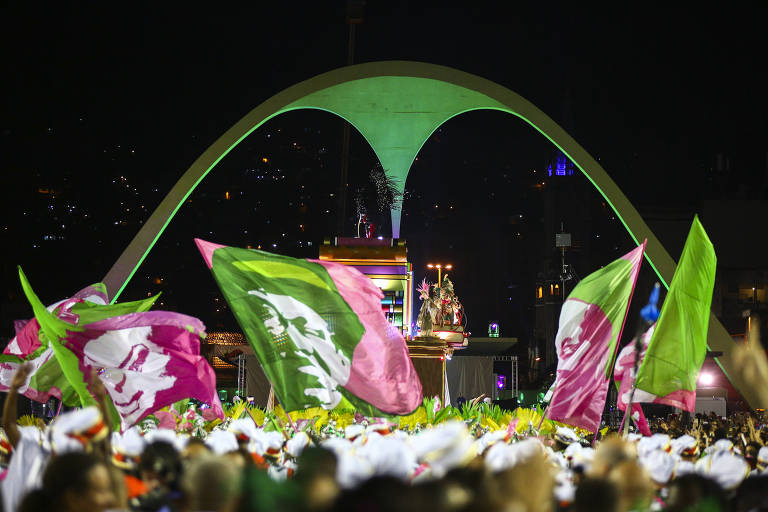Brazil/Forget the evil that consumes you/May the children of the hungry planet/Not lose hope/In their singing.
This song, "Hungry Planet" is by Elza Soares a legendary samba singer who will be honored by the Mocidade Independent samba school.
Social criticism once again permeates the plots of big schools at this year's Carnival, starting February 23 — some with clear references to the political world. The sambas evoke messianic figures, such as Jesus and Dom Sebastião, and stories of the Brazilian people, starting with the life of Elza herself, born in the Rio de Janeiro slum of Moça Bonita, in Padre Miguel.
Current champion Mangueira chose the storyline "The Truth Will Make You Free", guided by the voice of a carioca Jesus.
"I am from Nazaré First Station / Blackface, Indian blood, woman's body / Hot Hole / name is Jesus of the People / (...) Favela, catches the vision / No future without sharing / No Messiah with a gun in his hand".
The green-pink parade will be led once again by Carnival Leandro Vieira.
Another messiah gains prominence in the plot "The Saint and the King: Enchanted by Sebastian", from Paraíso do Tuiuti. The Portuguese king Dom Sebastião, missing in the battle of Alcácer-Quibir, in North Africa, in 1578, meets with the patron saint of the city of Mazelas. The wait for the "Overcast" has always been around popular festivals and twines in the Northeast.
In São Paulo, the Colorado do Brás school also revisits the Sebastianist myth in the samba-plot "Que Rei Sou Eu?".
Translated by Kiratiana Freelon
